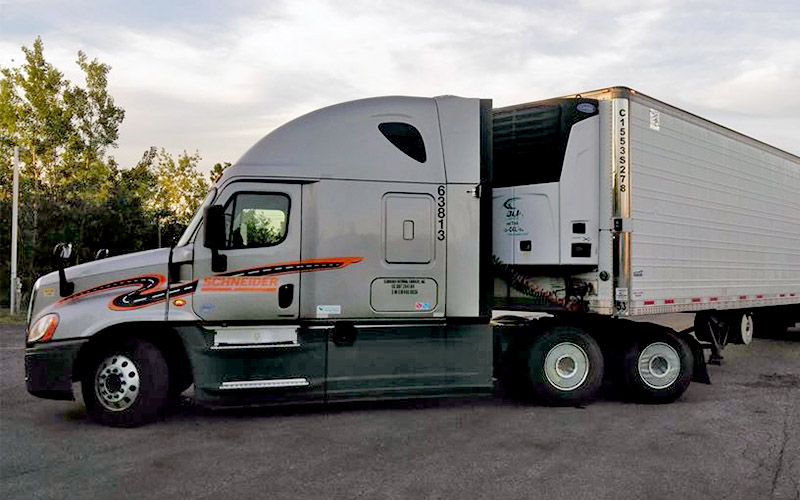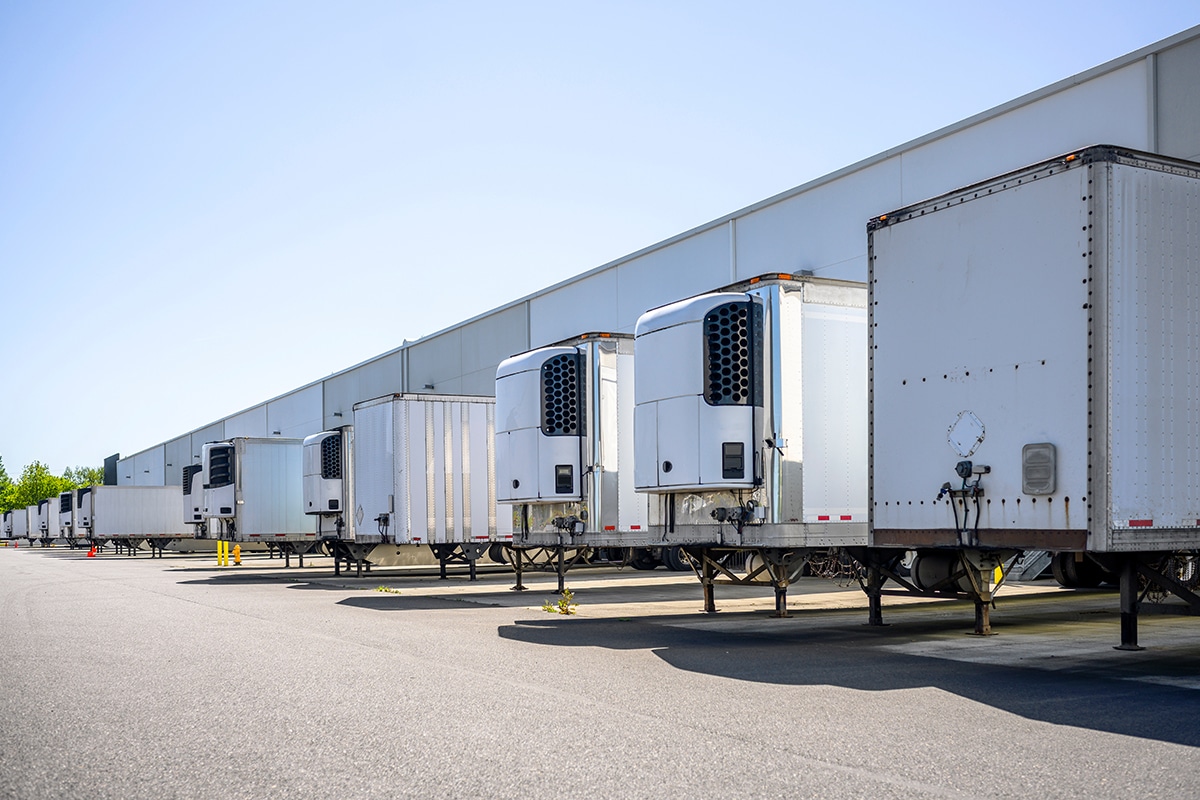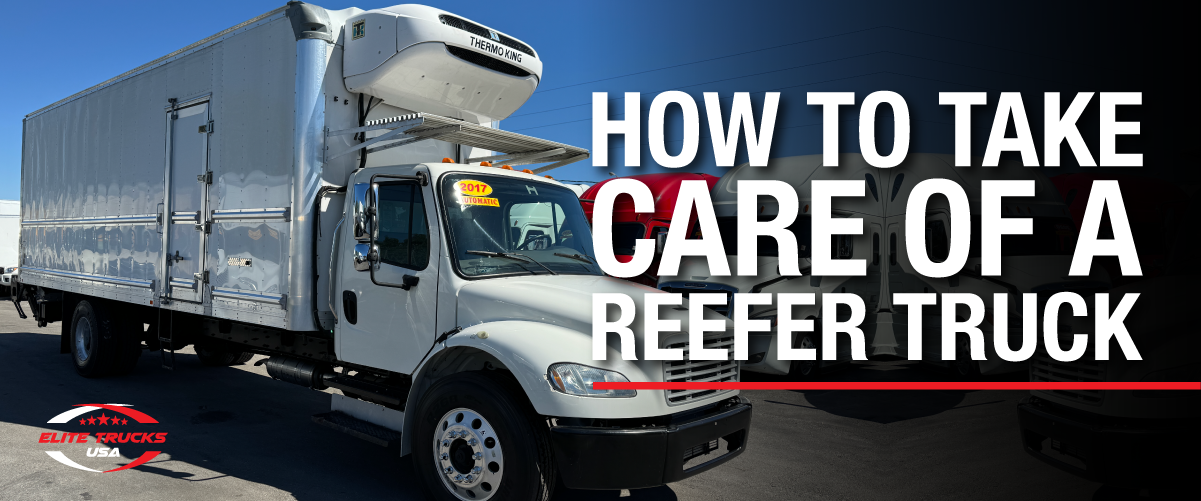Refrigerated Transportation Thermo King: The Ultimate Solution
Refrigerated Transportation Thermo King: The Ultimate Solution
Blog Article
Selecting the Right Transport Refrigeration System for Your Fleet
Choosing a suitable transport refrigeration system for your fleet is a crucial decision that can substantially influence functional performance and product integrity. It demands a comprehensive understanding of your certain refrigeration demands, consisting of temperature level demands and delivery routines.
Comprehending Your Refrigeration Demands
When choosing a transportation refrigeration system, comprehending your specific refrigeration demands is vital to making sure product top quality and compliance with industry requirements. Different variables need to be considered to identify one of the most suitable system for your procedure. These include the kind of products being transported, their temperature level demands, and the period of transit.
For perishable items, such as fresh produce or drugs, exact temperature control is essential. Recognizing the temperature range needed for each item enables the choice of a system that can keep those problems constantly. Additionally, think about the frequency of deliveries and the distance took a trip; longer journeys might require systems with boosted insulation or back-up power options to protect against temperature level changes.

In addition, the ability of the refrigeration system need to align with your tons dimension. Overwhelming an unit can lead to not enough air conditioning, while an oversized system may be costly and ineffective. Governing conformity is necessary; acquaint yourself with regional and worldwide standards governing the transportation of temperature-sensitive items. By extensively evaluating these variables, you can make sure that your chosen transportation refrigeration system effectively satisfies your operational demands and keeps item honesty.
Sorts Of Transportation Refrigeration Systems
Picking the appropriate type of transportation refrigeration system is critical for making sure the safe transportation of temperature-sensitive items. There are numerous systems available, each designed to satisfy particular requirements and applications.
The most typical types include straight expansion (DX) systems, which utilize refrigerant to soak up warmth and cool down the freight area successfully. These systems are frequently preferred for their efficiency and lower initial costs. One more option is the central refrigeration system, which serves several areas or cars from a solitary compressor unit. This is especially helpful for larger fleets requiring constant temperature control across various transport units.
Additionally, there are self-supporting refrigeration devices that incorporate the compressor and evaporator in one package. These units are suitable for smaller vehicles or when room is restricted. For specialized applications, such as moving perishables or pharmaceuticals, cryogenic refrigeration systems may be utilized, utilizing liquid nitrogen or carbon dioxide to maintain ultra-low temperatures.
Lastly, crossbreed refrigeration systems that combine electrical and diesel power are becoming progressively preferred, offering versatility in energy use and reducing environmental influence. Recognizing these numerous kinds allows fleet operators to make educated choices tailored to their particular operational needs.
Key Features to Take Into Consideration
How can one ensure that a transport refrigeration system fulfills all operational needs? To attain this, a number of key attributes must be meticulously assessed. Firstly, temperature level control is crucial; systems should offer accurate temperature settings to fit numerous products, varying from frozen items to disposable things.
Energy effectiveness is another essential factor to consider, as it impacts functional expenses. Search for systems that make use of innovative technology, such as variable rate compressors, to optimize energy use without compromising efficiency.
One more function to assess is the dependability and sturdiness of the tools. Equipments built from top notch materials and created for durability against harsh problems will certainly minimize upkeep prices and downtime.
Moreover, the simplicity of upkeep and ease of access of parts can significantly influence operational efficiency (reefer trucks thermo king). Features like modular designs or remote surveillance capabilities can improve solution procedures
Finally, compatibility with existing fleet management software program can boost tracking and reporting processes. By concentrating on these key functions, fleet drivers can ensure that their transportation refrigeration systems not only satisfy existing needs but likewise adjust see this to future demands.

Budgeting for Refrigeration Solutions
Examining essential features of transportation refrigeration systems is only one component of making certain functional performance; budgeting for refrigeration services is just as vital. A well-structured budget plan not only encompasses the preliminary purchase cost however likewise thinks about long-term functional expenses, including power usage, upkeep, and prospective repair work demands.
When establishing a budget plan, fleet managers ought to initially evaluate the complete cost of ownership (TCO) This consists of not just the purchase expenses yet likewise ongoing expenses connected to fuel effectiveness and the resilience of the refrigeration systems. Choosing systems with greater power performance ratings may yield considerable financial savings gradually, mitigating ahead of time expenses.
In addition, fleet operators ought to represent possible scalability. As companies expand, the refrigeration needs might change, requiring upgrades or pop over to this site additional devices. Planning for these future expenditures can stop financial strain.
Funding options can also play a vital role in budgeting. Leasing, finances, or outright acquisitions each have distinctive financial ramifications, and comprehending these can aid in making an educated choice. Ultimately, a comprehensive budget plan that takes into consideration both instant and future demands makes certain that transport refrigeration systems contribute positively to the total functional performance of the fleet.
Maintenance and Support Alternatives
In the world of transportation refrigeration systems, effective maintenance and assistance choices are important for guaranteeing optimal performance and longevity. Routine upkeep is necessary to prevent failures and maintain the stability of temperature-sensitive freight. It is a good idea to establish a regular examination timetable with certified service technicians who can do necessary checks and repair work on refrigeration devices.
Support alternatives should consist of a durable service contract, covering both routine upkeep and emergency situation repairs. This ensures that your fleet has accessibility to trigger help, minimizing downtime and preserving operational Find Out More effectiveness. Numerous producers offer detailed assistance packages that include training for your personnel, enabling them to carry out basic troubleshooting and upkeep jobs.
In addition, using remote monitoring modern technology can improve your upkeep method - reefer trucks thermo king. These systems provide real-time data on temperature level and efficiency, permitting positive actions prior to issues rise. Buying training and modern technology not just boosts your fleet's reliability however additionally extends the life expectancy of your refrigeration systems
Inevitably, a critical approach to upkeep and assistance will secure your investment and guarantee that your transport refrigeration systems operate at peak efficiency, delivering constant results for your service.

Final Thought
In conclusion, selecting the suitable transportation refrigeration system for a fleet demands a detailed evaluation of certain refrigeration needs, system kinds, and necessary functions. Focusing on operational efficiency, power intake, and maintenance factors to consider is crucial for ensuring integrity. Furthermore, mindful budgeting and planning for future scalability will contribute to the lasting success of the refrigeration method. Inevitably, a knowledgeable decision will enhance product stability and enhance total logistics procedures within the fleet.
Selecting an ideal transport refrigeration system for your fleet is a crucial choice that can considerably affect operational performance and item integrity.When choosing a transportation refrigeration system, recognizing your certain refrigeration demands is extremely important to making sure item high quality and compliance with market requirements. By extensively assessing these elements, you can make certain that your picked transportation refrigeration system effectively meets your operational demands and maintains product honesty.
Ultimately, a thorough budget that takes into consideration both future and instant needs makes sure that transportation refrigeration systems contribute favorably to the overall functional efficiency of the fleet.
In verdict, picking the proper transport refrigeration system for a fleet demands a detailed assessment of specific refrigeration demands, system types, and vital features.
Report this page